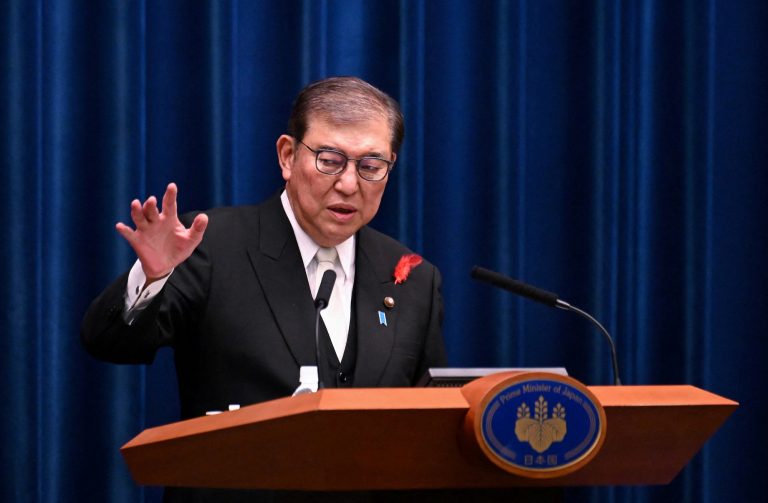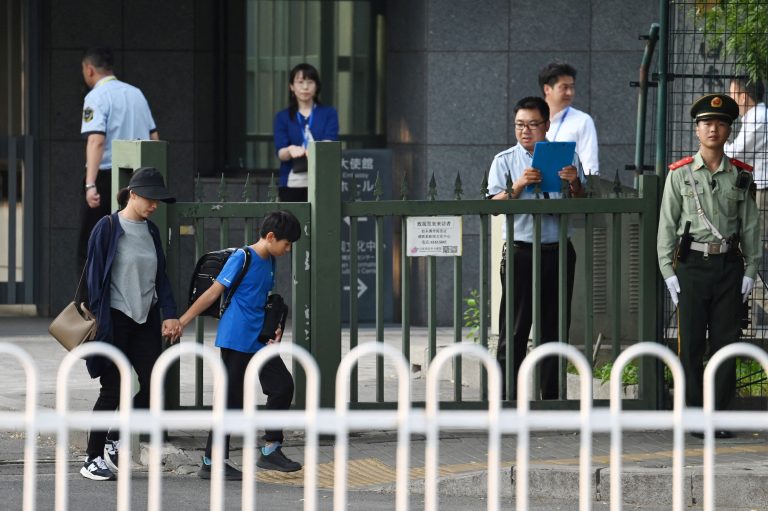Fumio Kishida, 64, is set to become Japan’s 100th prime minister following a leadership vote on Wednesday, Sept. 29, by the incumbent Liberal Democratic Party (LDP).
Kishida won the runoff 250-170 against rival Taro Kono who was considered to be more popular and is said to have more appeal among younger voters. Kono has more than 2.5 million followers on Twitter.
His victory means that it’s almost certain that he will become premier after the upcoming parliamentary session on Oct. 4 due to the LDP’s majority in the legislature.
Kishida is considered a moderate-liberal politician and is expected to govern his party slightly more to the left than his predecessor, Yoshihide Suga, who did not seek re-election after only one year in office.
Suga announced last month that he would not be running again amidst plummeting approval ratings. He was concerned that managing the ongoing COVID-19 pandemic and campaigning would “divide his energies” and opted to focus on the COVID-19 crisis. Suga himself took over from Shinzo Abe, also of the LDP, who was famous for his right-wing policies and his nine years in office — the longest career of any Japanese prime minister.
Success
You are now signed up for our newsletter
Success
Check your email to complete sign up
Kishida was born in Shibuya, Tokyo, and hails from a political family; his father and grandfather had both been lower house members and he is a distant relation of former prime minister Kiichi Miyazawa.
Kishida was first elected to parliament in 1993 and served as a foreign minister between 2012 and 2017 under Abe, who resigned in 2020 over his failing health.
One of Kishida’s major accomplishments as a foreign minister was to strike a deal with South Korea over the “comfort women” — who in World War II were forced by the Japanese military into sexual slavery. The issue remains a diplomatic impasse between the two countries to this day.
Japanese citizens will be watching their new prime minister to see if he listens to the public or is more influenced by the power politics of his party. As the current term for the country’s House of Representatives ends on Oct. 21, Kishida must maintain a high enough approval rating to secure election in the upcoming nationwide vote on Nov. 28.
It’s expected that Kishida’s priorities will remain “boosting Japan’s defenses, preserving economic ties with Beijing and strengthening security ties with the U.S. and partners like QUAD group, which includes Australia and India,” as reported by Newsweek.
Japanese security expert Jeffery Hornung told the Washington Post that “from a security standpoint, diplomatic standpoint, I don’t think we’re going to see much change.”
Yu Uchiyama, professor of political science at the University of Tokyo, told Japan Today that “There is the question of whether Kishida will appeal to voters in the general election as the face of the party, seeing as Kono has been much more popular.”
According to a recent survey by Japan’s Kyodo News, just 18.8 percent of respondents chose Kishida as the politician most fit to replace Suga as prime minister, compared with 31.9 percent choosing Kono.
Kishida’s campaign promises include an economic package worth tens of trillions of yen (billions of U.S. dollars) as a pandemic stimulus, as well as cash handouts for lower- and middle-class Japanese.
However, according to Meiji University’s Prof. Masamichi Ida, approval ratings in Japan rely on solid economic performance.
“That’s how the government of (Shinzo) Abe kept going for so long,” the public opinion and election analysis expert told Japan Today.
Regardless of Kishida’s performance, the LDP is unlikely to lose its super-majority position in the House of Councilors, Japan’s lower legislative body.
Leo Timm contributed to this report.







